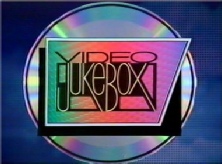
TV Pop Diaries
Pop Music on British Television 1955 -
John Archer the then producer of BBC1's irregular arts strand Omnibus suggested that
a show be set aside to review the story and progression of music's relationship with
visuals, be it on film, television or promotional video, the production of which
by the mid-
Choosing a host/hosts to take us through the history, and throughout the night, should not have been that difficult. Whistle Test regulars of Mark Ellen and David Hepworth would have been ideal, having hosted Rock Around The Clock for over twelve hours at a time, perhaps Janice Long and Dave Jensen would have done it easily, as could comedy actors like Adrian Edmondson and Jennifer Saunders. However, John Peel and John Waters were chosen, neither of whom showed any insider knowledge (having none), or interest in the story (they're both borne of radio), generally disparaging the work on screen, the people making it and the reason they made it.
Starting the show with Queen's Bohemian Rhapsody promo clip, probably the genre's most famous, the story begins with soundies from the thirties and forties, the rock and roll movies of the fifties and into The Beatles and Monkees era. The promo clips of The Beatles and The Rolling Stones played in the show had not been seen on British television since their original transmission, with We Love You not having been shown on BBC1 before, due to its contemporary ban for its nudity and sexual innuendo. While many promotional clips from the mid to late sixties were made, not all clips were made necessarily to promote a record, it was just as likely to promote the act who were about to tour or visit abroad.
We are then taken into the show's freak-
Many film-
The (near) complete show was repeated the following year on BBC2 as an alternative to the General Election coverage on BBC1, but with a few changes. The Beatles had not allowed a repeat of their promo clips as they were due to be shown in the summer of 1987 on Granada's It Was Twenty Years Ago documentary about Sgt Pepper. They were replaced by a few extended clips of The Supremes, Connie Francis and Clifford T Ward, a clip of Pacific Gas & Electric, and Filmfinders clips from The Old Grey Whistle Test accompanying songs by Led Zeppelin and Tom Petty.
At 9.30 that night of the original broadcast the whole of the UK could hear the sound of VHS's clicking into action to record the whole thing, and thankfully it has survived.
John Archer later went on to start Hopscotch Films, a well-
VIDEO JUKEBOX
BBC1
9th May 1986
